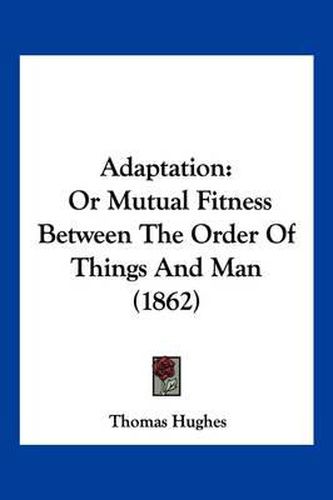Readings Newsletter
Become a Readings Member to make your shopping experience even easier.
Sign in or sign up for free!
You’re not far away from qualifying for FREE standard shipping within Australia
You’ve qualified for FREE standard shipping within Australia
The cart is loading…






Purchase of this book includes free trial access to www.million-books.com where you can read more than a million books for free. This is an OCR edition with typos. Excerpt from book: thought that his system had the advantage over that of Berkeley, inasmuch as material substance presented itself to the senses, and an infinite intelligent cause only to our rational deduction. And so far as the belief of mankind at large goes, if it came to that, they would believe their immediate senses, before they would their rational deductions. Berkeley said, Infidelity is wrong, and an impossibility; for the visible world is nothing but modifications of Ideas. Hume answered, You are wrong, nothing exists but matter, your senses are all right, your deduction and revelation are all wrong. If we are allowed to be the jury in so great a case, we believe the two wrong: matter exists, mind exists: the two are essentially needful, and are the complement of the universe of God. The things which God has united let no man put asunder. We are compelled by our senses to believe in one; we are compelled by reason to believe in the other; and, by revelation, in the two. We know also the qualities or attributes of existence. We know extension, form, colour, smooth or rough, solid or liquid, as belonging to material substance. We understand, also, that will, memory, judgment, and reason, are powers or attributes of tuind. Wherever wemeet with these things, we judge accordingly; we know existence in its attributes, as we know a cause in its results. Existence is characterized by variety. Never are two objects found exactly alike; and never precisely the same two minutes together. Things are classed into their various orders and classes, and thus bear similarity to one another; and those which are most like one another, there is a sufficient diversity to mark their distinction. Every object we see, every sound that reaches the ear, every taste of the mouth, every scent of the nostril, …
$9.00 standard shipping within Australia
FREE standard shipping within Australia for orders over $100.00
Express & International shipping calculated at checkout
Purchase of this book includes free trial access to www.million-books.com where you can read more than a million books for free. This is an OCR edition with typos. Excerpt from book: thought that his system had the advantage over that of Berkeley, inasmuch as material substance presented itself to the senses, and an infinite intelligent cause only to our rational deduction. And so far as the belief of mankind at large goes, if it came to that, they would believe their immediate senses, before they would their rational deductions. Berkeley said, Infidelity is wrong, and an impossibility; for the visible world is nothing but modifications of Ideas. Hume answered, You are wrong, nothing exists but matter, your senses are all right, your deduction and revelation are all wrong. If we are allowed to be the jury in so great a case, we believe the two wrong: matter exists, mind exists: the two are essentially needful, and are the complement of the universe of God. The things which God has united let no man put asunder. We are compelled by our senses to believe in one; we are compelled by reason to believe in the other; and, by revelation, in the two. We know also the qualities or attributes of existence. We know extension, form, colour, smooth or rough, solid or liquid, as belonging to material substance. We understand, also, that will, memory, judgment, and reason, are powers or attributes of tuind. Wherever wemeet with these things, we judge accordingly; we know existence in its attributes, as we know a cause in its results. Existence is characterized by variety. Never are two objects found exactly alike; and never precisely the same two minutes together. Things are classed into their various orders and classes, and thus bear similarity to one another; and those which are most like one another, there is a sufficient diversity to mark their distinction. Every object we see, every sound that reaches the ear, every taste of the mouth, every scent of the nostril, …